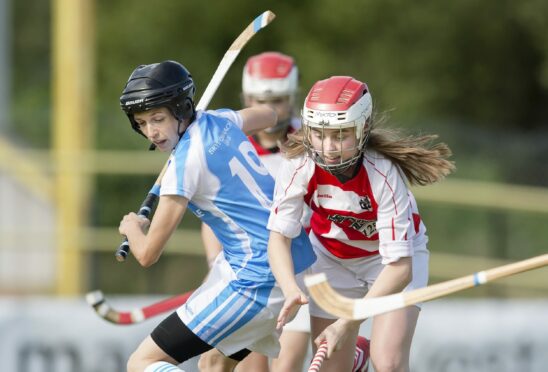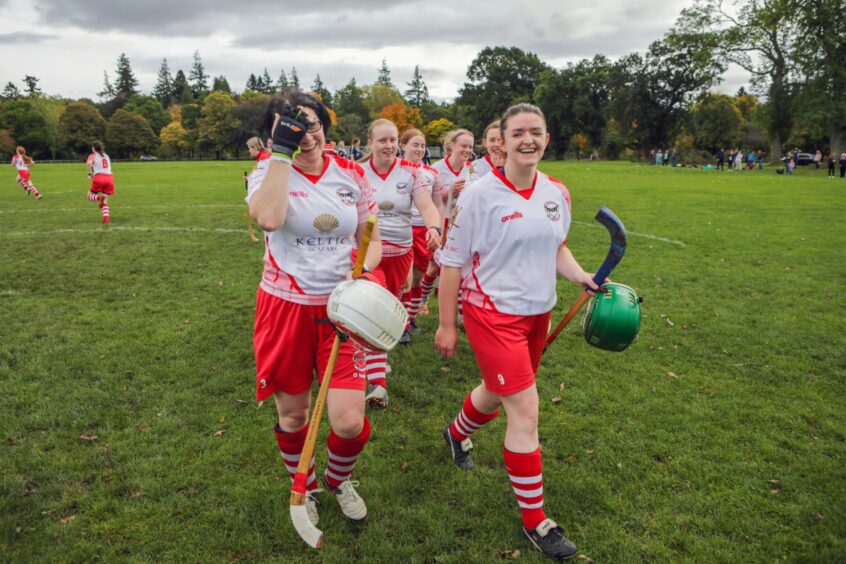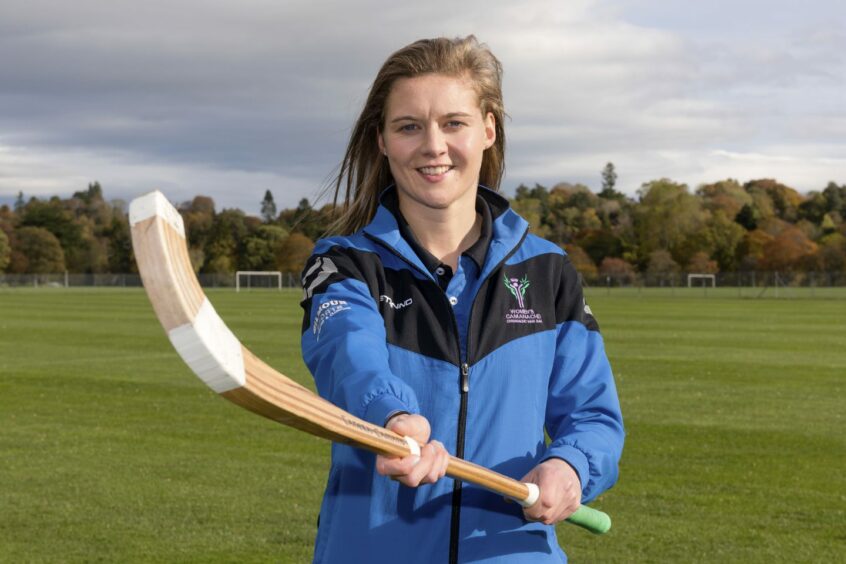
It was Scotland’s national sport long before football. Shinty – a fast and furious game played with a hooked stick and a ball – was prominent as far back as the sixth century; the skills it honed were vital to warriors in battle.
For centuries, the game of the Gaels in Highland Scotland and Ireland and among their diaspora, remained the stronghold of men, with women relegated to serving tea and home bakes on the sidelines.
But slowly, over recent decades, change has come, and today – with 52 male teams and around 20 all-women sides – shinty is taking another major leap forward after the governing body, the Camanachd Association (CA), for the first time in its 130-year history, appointed a key member of staff with the sole purpose of pulling more girls and women into the game.
The part-time female-only development officer, Kirsty Lobban, 26, from Inverness, has just taken up her role. Funded by Sport Scotland, she will target schools and clubs across the country, with the emphasis on the Central Belt.
President of the Camanachd Association, Beauly-based dad-of-two Steven MacKenzie, 51, said: “Some of the biggest growth in the last 10 years has been in the women’s game. That is a key focus for us. In the last funding round, we were given more funding for a part-time women’s only development officer. It’s the first role of its kind within the association and is specifically for developing growth within the women’s game.
“It is absolutely critical that we go into schools and try to get everyone involved. In the past, women were restricted to doing the baking and supporting the husbands but in this day and age, they have every right to expect to be involved in the sport and have opportunities to progress and take shinty as far as they want to.
“That can be from playing in school and representing their village to hopefully, becoming the best players who will go on to represent Scotland and play against Ireland in the shinty Camogie.
“It was male-dominated. In the late 19th Century, the game was codified by the Victorians and the Camanachd Association was formed in 1893. Then the competitions developed. There had always been women who joined in because their brothers and families played, but they didn’t have an real outlet, so women’s teams started in the 1980s and they eventually formed an association.”
The CA aims to see a return to the wide-scale playing of the sport across Scotland, and female participation is key. He said: “There is a lot of potential within the Central Belt. There is a Highland diaspora there, whose families were maybe involved in the sport. We also have the growth of Gaelic medium education. Shinty is the sport of the Gael and we see shinty as central role within Gaelic and Highland culture. While we are extremely proud of that, we don’t see it exclusively as a Highland sport. We would love to take it all over the country for people to experience what it is like. It is a very fast and exciting sport that requires a high degree of athleticism and fantastic hand-eye coordination.”
Lobban, who is moving from the Highland capital to Edinburgh to fulfil her role, told The Sunday Post: “It’s exciting that the job even exists. I just started in January and have a huge passion for this. The role is an opportunity to give the girls and women the chance and a voice in the sport just as much as the boys and the men. I am looking forward to being part of it. The partnership with the Women’s Camanachd Association (WCA) will be super important.”
Its vice-president Karen Williamson, 43, is a founder member of Glengarry Shinty Club that started in 1997.
Known as the “Garry Girls” it was among the first all-female teams leading to the formation of the WCA.
A childminder and mum to Darcie, seven, and Maisie, five, who both play, she lives near Inverness. Williamson told The Post: “It is great that we now have a female-only development officer, someone to drive the sport forward in this way. It’s the first role of its kind for the association.
“As with the men’s game, shinty is not as dominant in the Central Belt as it is in the north. This post will get more people involved and more recognition for the game.”
Kirsty Deans, a CA Director, former Scotland International captain and Badenoch Ladies captain who also plays football for Inverness Caledonian Thistle, is thrilled by Lobban’s appointment. The 31-year-old, who lives in the city and teaches PE at Forres Academy, said: “Where we are at now differs massively from when I was in secondary school, never mind going back to my mum or gran’s generations.
“The women’s game now is much more accepted and respected than in previous generations and we are very grateful for the extremely hard work that the WCA put in to give girls the opportunity to play in our own leagues.”

Enjoy the convenience of having The Sunday Post delivered as a digital ePaper straight to your smartphone, tablet or computer.
Subscribe for only £5.49 a month and enjoy all the benefits of the printed paper as a digital replica.
Subscribe
 © Neil G Paterson
© Neil G Paterson